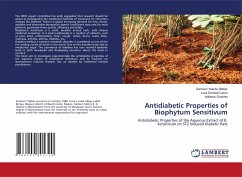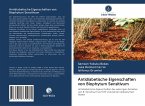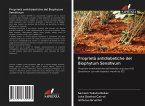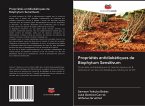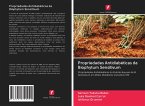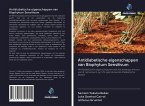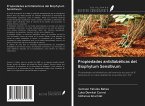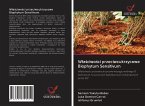The WHO expert committee has aptly suggested that research should be aimed at investigating the traditional methods of treatment for refractory diseases like diabetes. There is a global increasing demand for new, cheap, available and alternative therapeutic agents. Insufficient data exist for most plants to guarantee there quality, efficiency and safety. Biophytum sensitivum is a small, sensitive annual herb, with diverse medicinal properties. It is used traditionally in a number of ailments, such as joint pains, inflammation, fever, cough, tumor, burns, snake bites, insomnia, arthritis, asthma, diabetes, etc. Diabetes mellitus a common metabolic disorder, is considered as one of the five leading causes of death in the world. Due to this disorder body fails to metabolize sugar. The prevalence of diabetes has now reached epidemic levels in both developed and developing countries. Hence the need to curtail it. This book aim to investigate experimentally the antidiabetic properties of the aqueous extract of biophytum sensitivum and its fractions on strptozotocin induced diabetic rats as claimed by traditional medical practitioners.
Bitte wählen Sie Ihr Anliegen aus.
Rechnungen
Retourenschein anfordern
Bestellstatus
Storno

